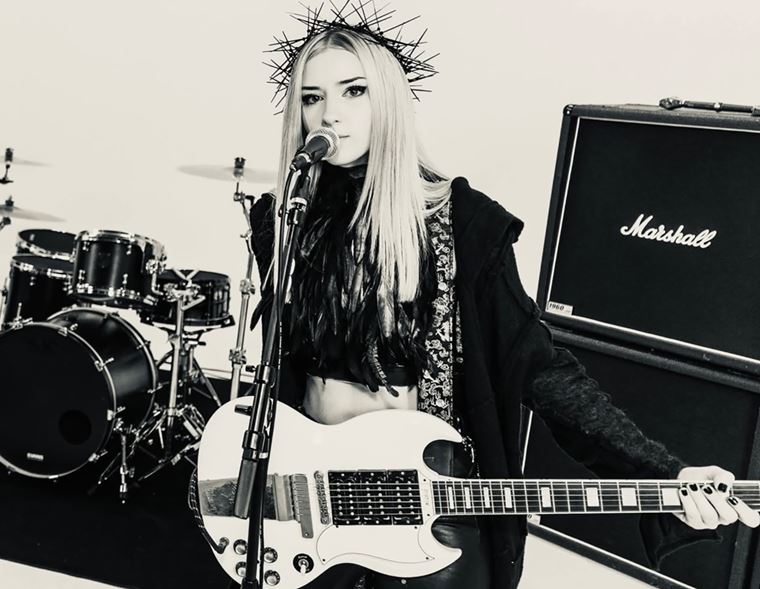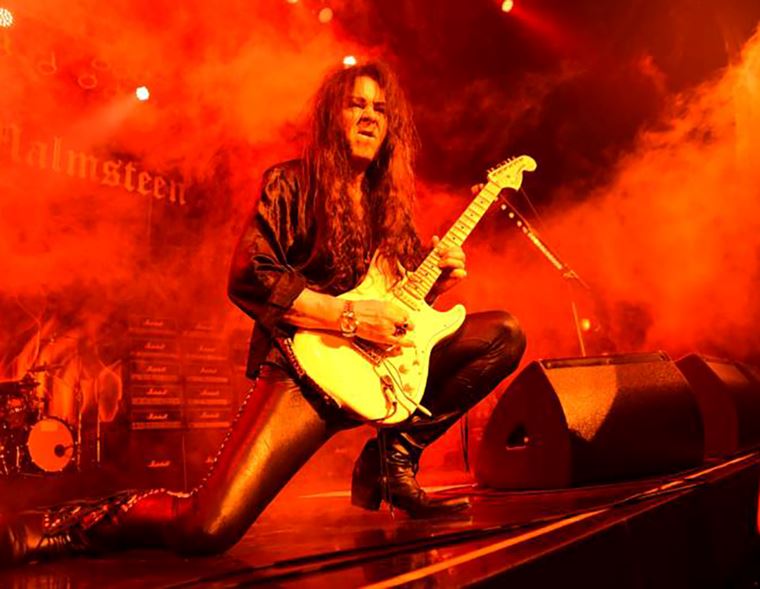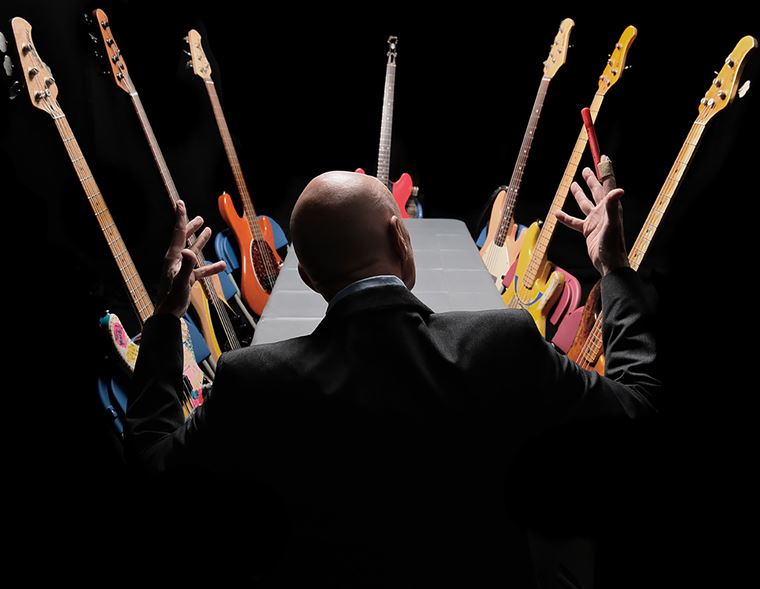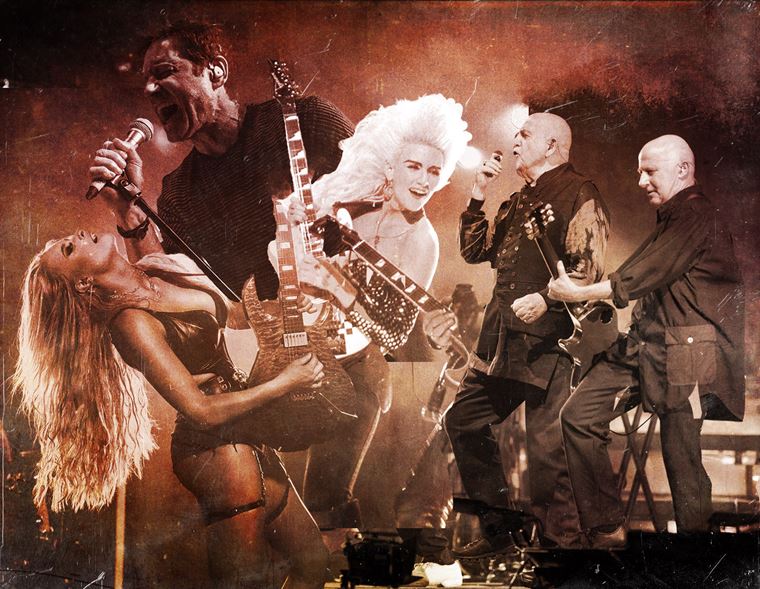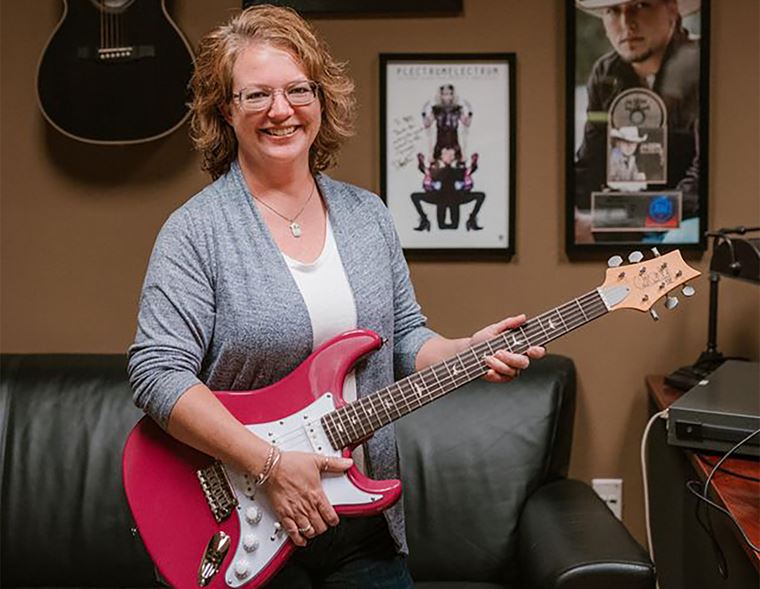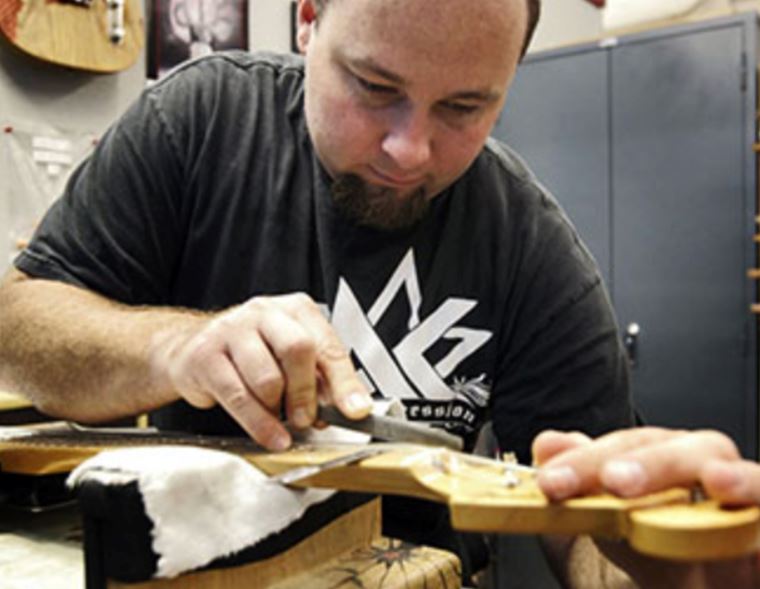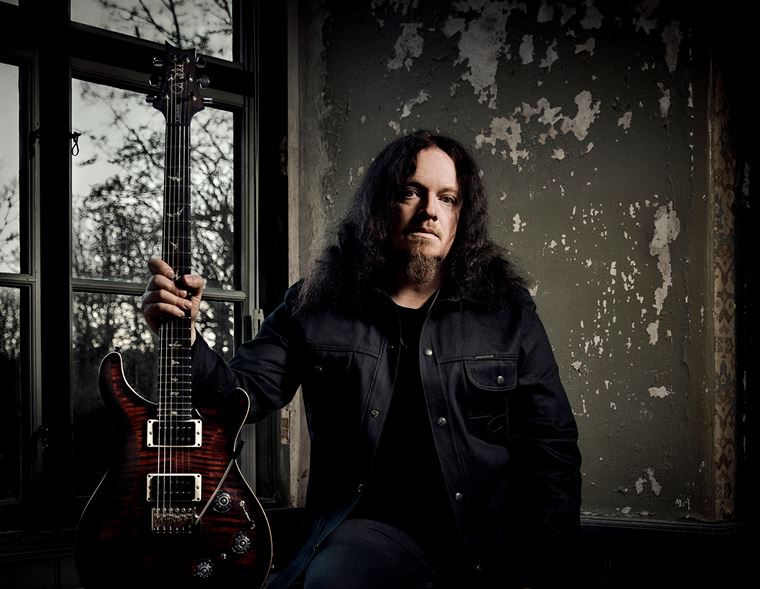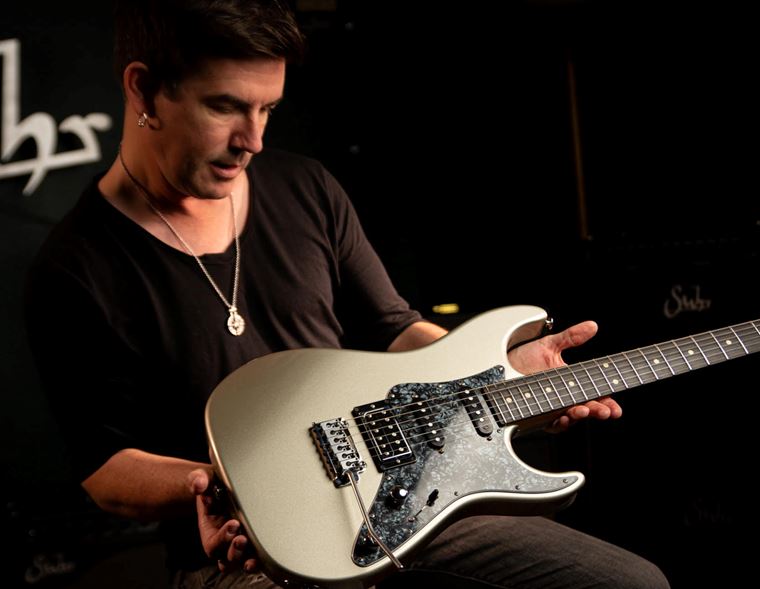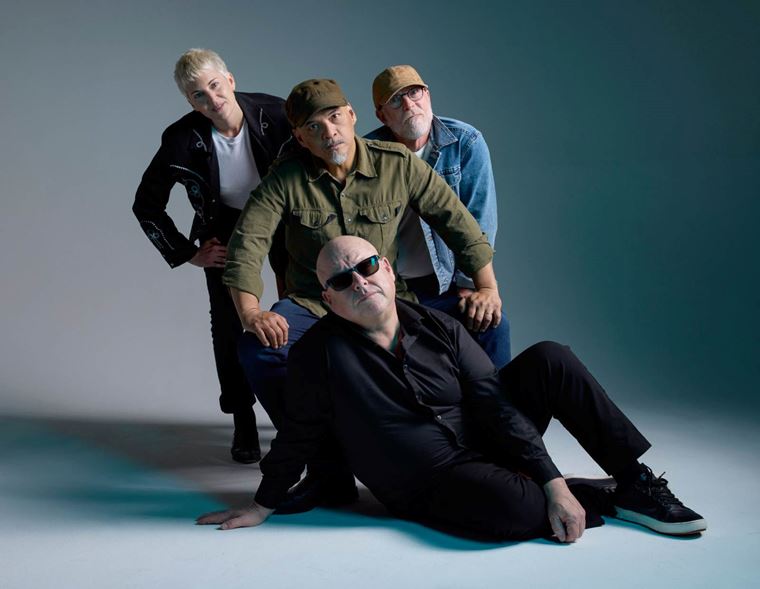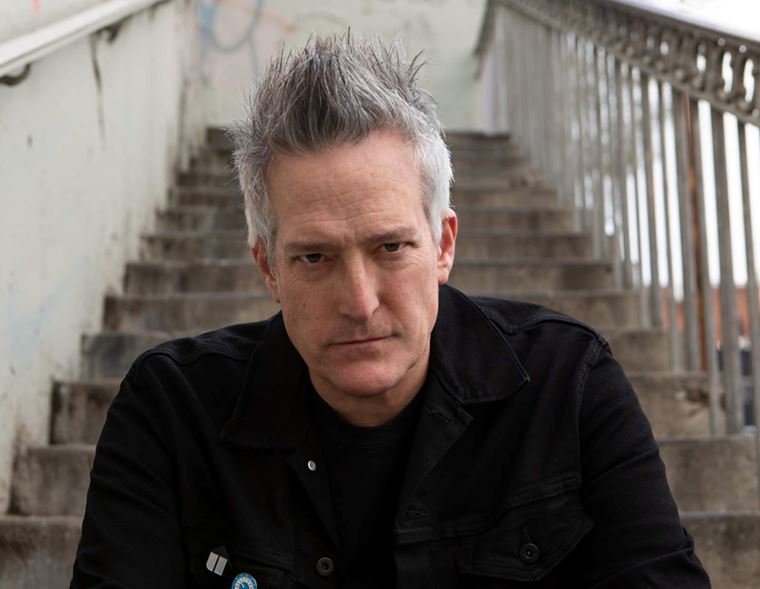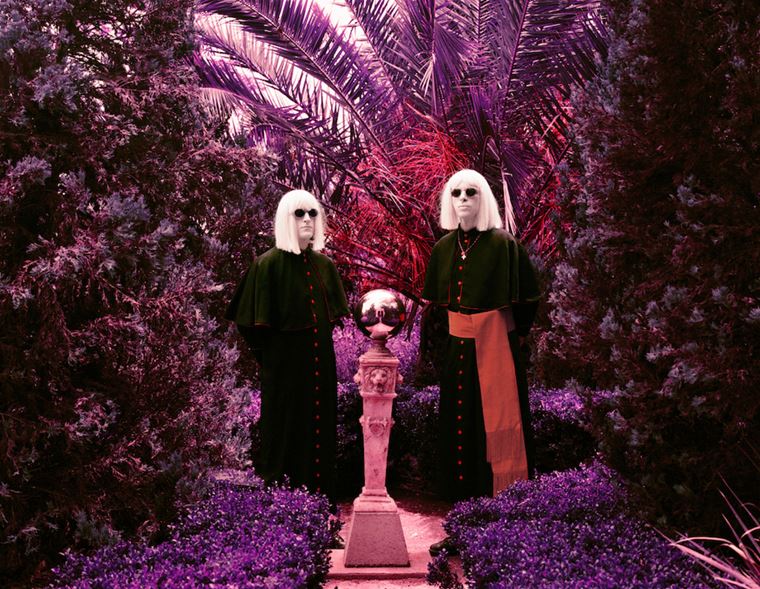The guitarguitar Interview: Caspar Brötzmann
Published on 20 May 2020
If the analogy stands about musicians painting colours in the air with sound instead of with oils or acrylics, then Caspar Brötzman’s guitar playing puts him somewhere between Picasso, Jackson Pollock and Hieronymus Bosch.
Listening to his free, expressive, unfettered playing style is exhilarating, to say the least. With his upside-down Strat and Marshall stacks an obvious signifier of one strong influence in particular, Brötzmann has seemingly comprehended magic available in the realms of psychedelic music that lies outside the usual Pentatonic Blues-based approach taken by so many. His style is effortless and even gleefully violent at times, as he harnesses the incidental noises, overtones and situational feedback that occurs during playing, and makes them the focal point of his style. Hazard and opportunity are deliberately in focus, and the results are thrilling.
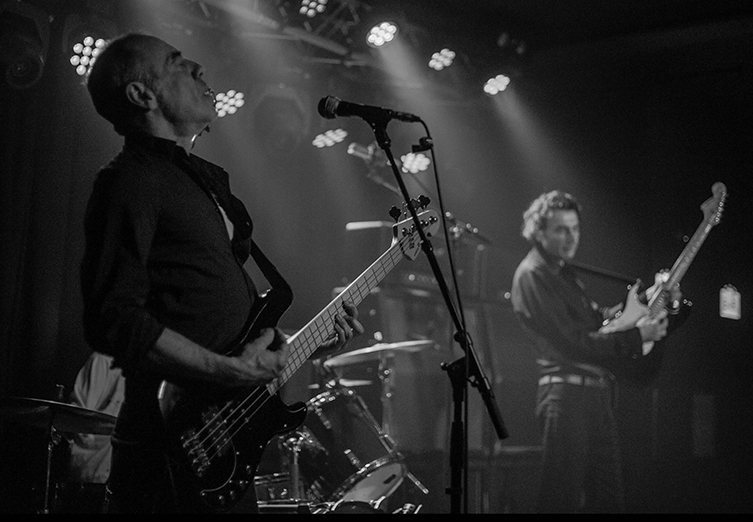
(Photo: Bruno Gebhard)
He is a weaver of sound, revelling in the joy of volume, distortion and electricity, plying his sound as if it were fresh clay to be moulded into ever-more abstract forms.
Along with bandmates Eduardo ‘Elk’ Lopez and Danny Arnold Lommen, the three-piece Caspar Brötzmann Massaker take this sonic approach and create swirling, snarling pieces of polymorphous, cutting-edge music that puts reaction and thought process front and centre. Coming through in the same 80s underground Berlin scene that brought us acts like Einsturzende Neubauten, Caspar has made a significant mark in the world of expressive and contemporary guitar playing.
Genre-descriptions are relatively unhelpful here: this music sits as confidently within the avant-garde jazz circles inhabited by the likes of Rudolph Grey as it does with the monumental ferocity of bands like Swans. There is definitely a darkness and intensity here, but that’s not the whole story. The main difference is a clear sense of joy coming from the musicians: it may be confrontational music (in fact, there is no ‘may’ about it: this is confrontational music), but the people playing it are clearly having the time of their lives.
The Caspar Brötzmann Massaker reached a special creative place with 1995’s Home record. In the years since then, Caspar has stayed active and continued down his own path, with his attention drawn more and more to bass playing. This year sees a timely remastering and reissue of Home on Southern Lord records. Hopefully, having a home on this most suitable of labels will bring Brötzmann's music to a wider audience.
An opportunity recently arose to send Caspar a few questions about his playing via email. We didn't need any convincing! After a few weeks, he returned his replies, and we are more than happy to share them now. His friendly response and level of humility impressed us, as did his ongoing energy to create, be that guitar music, long scale guitar (how he refers to the bass) music, or painting. It seems all the same to him, which appears to often be the case with individuals who are true artists.
We caught up with Caspar not long after near-worldwide Covid-19 Lockdown went into place, as he pondered his plans for live performances later in the year. Caspar’s answers to our questions are great, and despite a small language barrier, his unique and magnetic personality shines through.
Caspar Brötzmann Interview
guitarguitar: Caspar, your language on the guitar is almost completely free from what I’d term ‘standard’ playing, like scale and chord patterns. Did you work hard to reject these more formalised processes, or is how you play simply how you’ve always approached the instrument?
Caspar Brotzmann: I have played guitar a lot since I was 14 years old. I can't call this work. It is somehow in my blood.
When I was young, I was trying to find my own way, away from my Father Peter Brötzmann, and Jimi Hendrix. It was not easy to find my place with all these millions of guitar players around. I cannot recall how I did find my own way, except that I never gave up. I have always been fuelled by the passion to be with my instrument, just to feel the guitar and neck in my hands. I really love that, and to be surrounded by high electric Marshall amp sounds. These feelings are what drives me.
Just a short note about my guitar playing. I am playing chords and patterns, riffs and melodies, but not conventional harmonies. Charles Ives, and the music of Central Park in the Dark was a very big inspiration for my guitar playing. When I was a kid, I remember my father returning from a US tour, he brought this record home. I still love this record today.
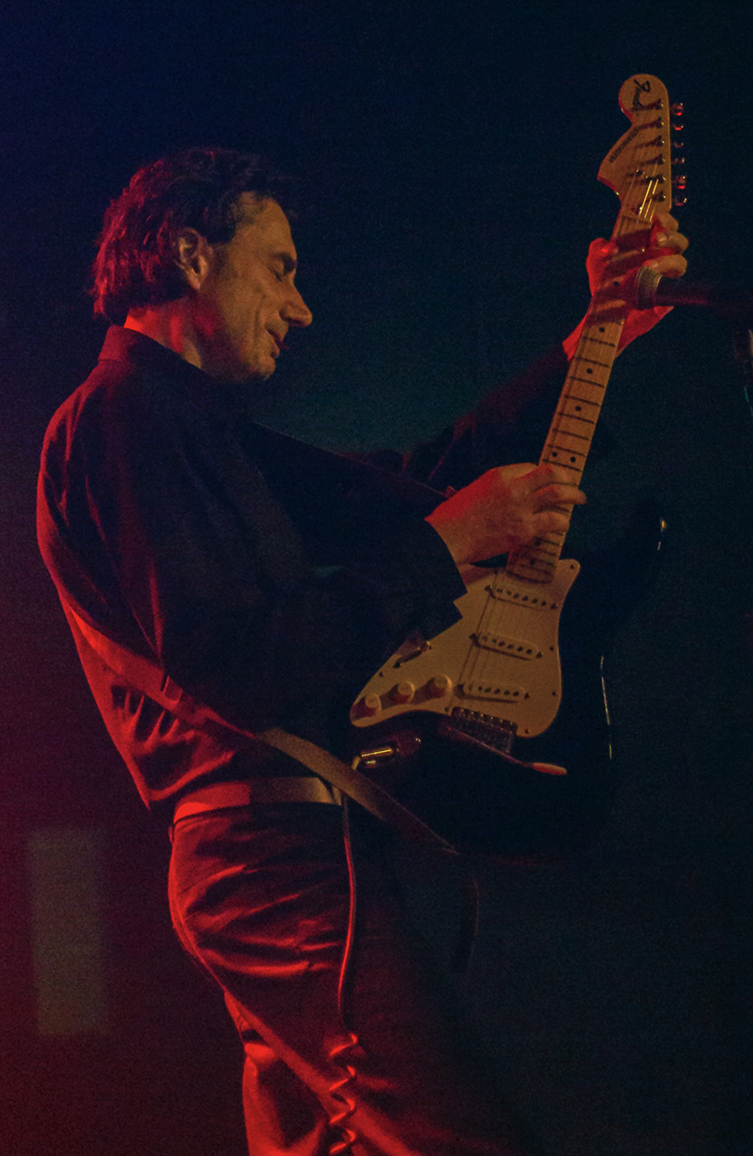
(Photo: Harry Harris)
GG: Although your playing style is highly unorthodox, your equipment choices are as classic as it gets: Fender Stratocaster, Marshall amp and Rat distortion pedal. Is this still your main guitar gear? And did you do much experimentation before arriving at that combination?
CB: Yes, it is still my main guitar gear. Fender Stratocaster and Marshall stacks. When I was 16 years old, I bought my first Marshall amp. Now I have 3 Marshall Amps, 100-watt Super Lead Plexis like full stacks. I am still using the old Rat I bought somewhere on tour in the US 94/5 and the classic Vox Wah Wah and an old Boss Chorus effect from the 80s. I am still using my first effect pedal. I guess the Vox Wah Wah now is number 6, the others have broken on tour, or lost somewhere else in the past.
For my playing it is important to have a high volume with an open warm sound, not compressed. I love tubes and need them for my playing whether in the studio or live on stage. I always play tube amps. There is just one expectation. When I play at home to practice, I am using a Vox Bass combo amp T25. That is a transistor amp.
I have not done much experimentation with other effect pedals or amps. I've learned that I do not need much for my guitar sound. In the end I only need power amplifiers.
For my Sandberg bass guitar I am using two Marshall Amps, VBA 400, and the regular cabs for these two Marshall Bass Amps, one VBC 412 and one 810 cab.
Now I am using the VBA/VBC Marshall Bass Sound gear for my new playing and effects of Root Palmer and a TC electronics distortion called Grand Magus. My instrument is a Sandberg VM4 (California) Bass Guitar in the old shape. This is a new world of sounds for me which I call Bass Totem. Oliver Riedel (Rammstein bassist - Ray) and Holger Stonjek (Sandberg founder) are supporting me with my new direction and helping me to handle some sound problems, which come about if, like me, you play the bass like a guitar. I am very thankful to have these nice friends in music.
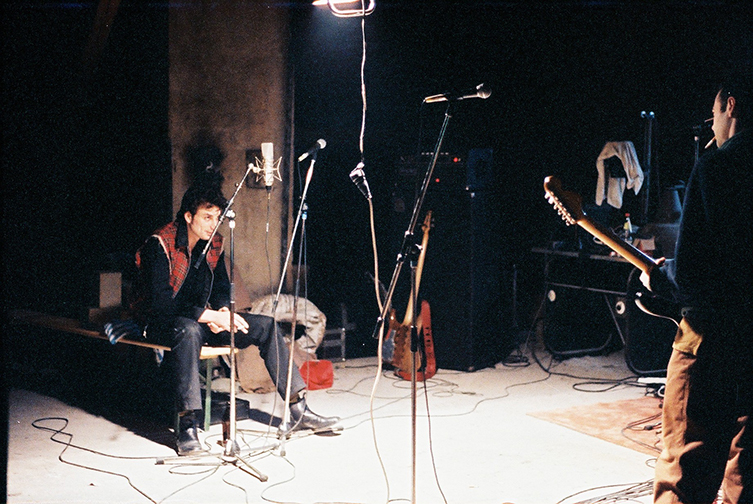
(Photo: Bruno Gebhard)
GG: What is your preference in terms of string gauge and plectrum?
CB: Ernie Ball Super Slinky 009 to 042 for my Stratocaster. In the past my favourites strings were D´Angelico Soul Rock Rollerwound strings 009 to 042, these strings are not manufactured any more by D'Angelico as far as I know. GHS Boomers 45 to 105 for my Bass Totem Sandberg bass guitar like standard, Ernie Ball Hybrid Slinky Bass 45 to 105 sometimes. The plectrums I use are mostly Dunlop, the simple orange ones or Fender Medium in the past. For my bass playing I don´t need any plectrums.
GG: How important are intuition and improvisation to your playing and writing?
CB: Both are really important to me. I guess this is, in the end, all that I have anyway. Based on my instinct and feelings, mixed up with my talent. I can't read notes anyway. But there are no rules for how I make music, it is also just fun to grab the guitar and play, no thought in mind, just going ahead free and tracking yourself. I do not have a formula nor strategies of what I should play next. Maybe it is just that simple, that my ears follow what my hands are doing.
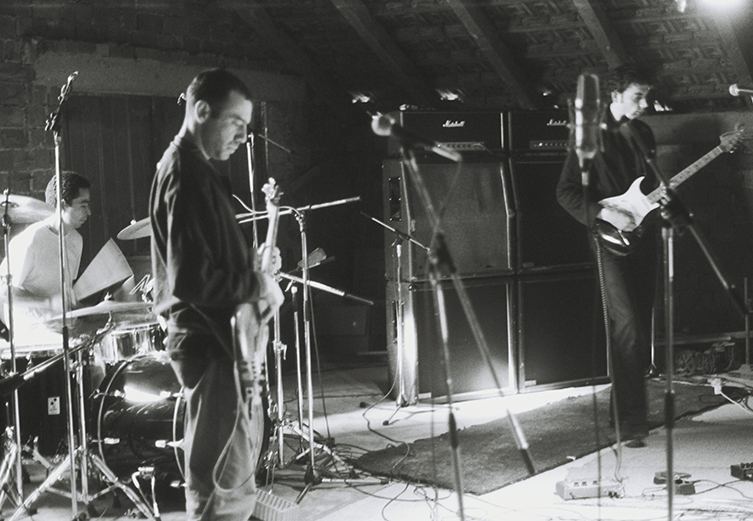
(Photo: Bruno Gebhard)
GG: Do you leave a lot of room for hazard and ‘happy accidents’ to occur musically?
CB: The songs of Massaker are structured. We played songs. If I play my guitar solos, bass and drums stay in the rhythm and carry the guitar. If I am going to finish my guitar solo for example, we watch out for each other, and have eye contact anyway most of the time and so we know the next part or break is coming up pretty quick. If you play these songs over and over again, they become second nature.
GG: Have you experimented much with digital technology in terms of guitar equipment?
CB: No, honestly not at all, and sorry about this boring answer. I am still satisfied after all these years playing electric guitar with my few amps, cabs and pedals that I am using for nearly 40 years now.
GG: In a live gig circumstance, do you tend to play songs from your albums as they appear on record, or are they different every time you approach them?
CB: Yes, as they appear on record more or less. Massaker always played songs and recorded them live in a studio. I had some freedom playing my guitar solos in songs like Massaker and The Tribe or in some intros of Tempelhof and Hunter Songs. When we made the songs for the first time in rehearsal rooms, we had a lot of jam sessions and worked out the song structures. These moments of music were more improvised.
GG: As an audience, we are more familiar with noise and atonality than ever before. Having said that, your guitar playing on 1995’s Home still stands out as particularly bold and ‘cutting edge’ today. Why do you think this is?
CB: To be honest, I have no idea what people and audiences are thinking about the record Home. I cannot put the music into a box or try to explain what kind of scene or age this music belongs to; this I leave for other people. Feel free, if you want to explain or call Home ‘cutting edge’. I would say, my feelings come close to what Greg Anderson from Southern Lord Recordings thinks of Massaker's music, that it is timeless.
GG: When you approach a guitar, what are you thinking about?
CB: I guess this depends on the guitar model, but again, I have what I need. I am not going much into music stores, maybe just for buying strings. Sometimes I take a look on the internet, searching for the old shape of a Sandberg California VM4 bass guitar. They are very rare. I am sorry, but I am afraid that I love what I already have.
GG: You play bass in Bass Totem. Do you think the bass is under-utilised in terms of scope within guitar-based music?
CB: Usually I don´t want to talk about it, because I confuse the people. Last weekend I had to make an announcement for a festival show in December (hopefully) and I found a good description for my new way of playing. You can call it a long scale electric guitar. Why not. It doesn't matter for me if you have 4 or 6 strings. Guitar is Guitar. In these modern times many, many people are playing like masters of hell. The thing you need is a vision, a dream or call it however you want, you need an idea behind what you want to do. For me, I play guitar on 4 strings and I find I need to practice every day, because you need strong hands and a lot of deep/thick skin on your fingertips, as deep as going to the bones. I find certainly find that when playing guitar on bass strings, like the usual strings on a Fender Stratocaster. It took me over 3 years and now I am at a point where I can say, "ok well now it is time to make new recordings this year".
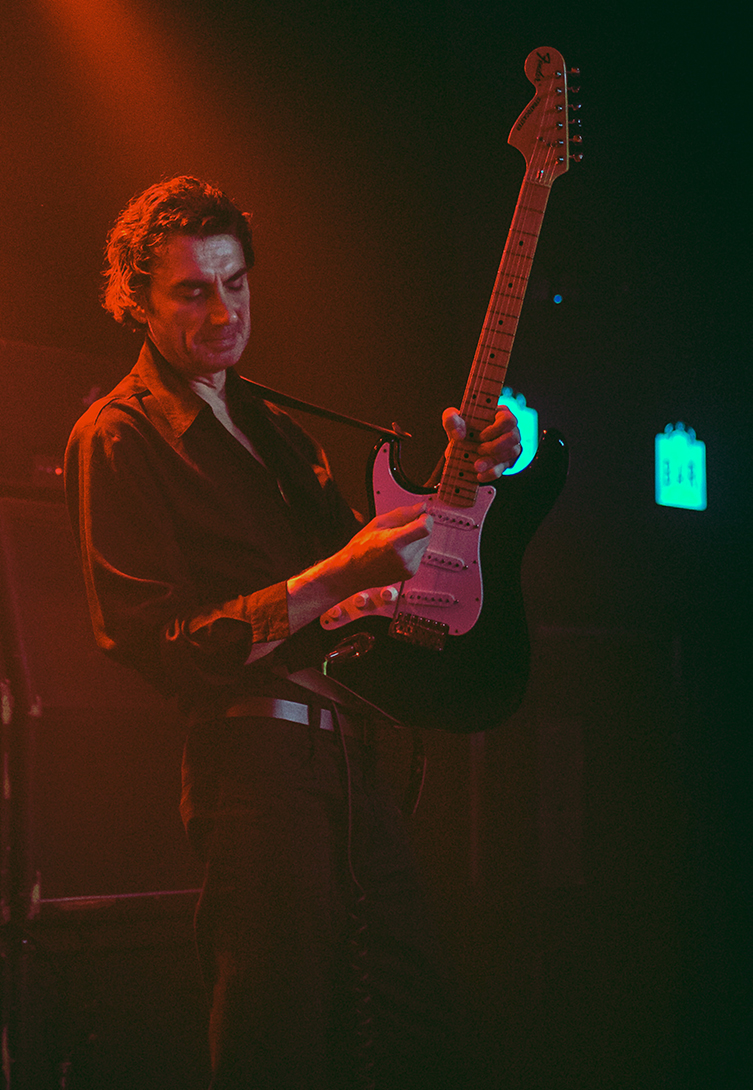
(Photo: Harry Harris)
GG: What type of qualities do you look for in a good bass guitar?
CB: I play a Sandberg (California) VM4 Bass Guitar old shape, I have 2 of these fantastic instruments. Both guitars are the best I ever held in my hands. One of these guitars is a present from Oliver Riedel and Holger Stonjek and one I found in the internet. Me and Holger Stonjek modified the neck in his Sandberg company workshop in Braunschweig/Germany for my left hand. What I try to say is, these instruments are in every detail perfect. Now it is on me to play, with all pleasure, the best I can, and to show how thankful I am to these two guys.
GG: Are you still based in Berlin? What changes have you seen take place in the city over the last 30 years? Is it still a great place to be for a musician or artist?
CB: There are so many changes in the whole world, perhaps too much to go into here. Berlin is a great city for musicians I guess, the same as London and New York maybe, but this question is based on your own idea, your desire, what you are looking for.
GG: Finally, Caspar: what plans do you have for 2020?
CB: I can´t wait to record my new music and play loud and live, and with all the best wishes on this beautiful planet, and that the humans are learning to be human.
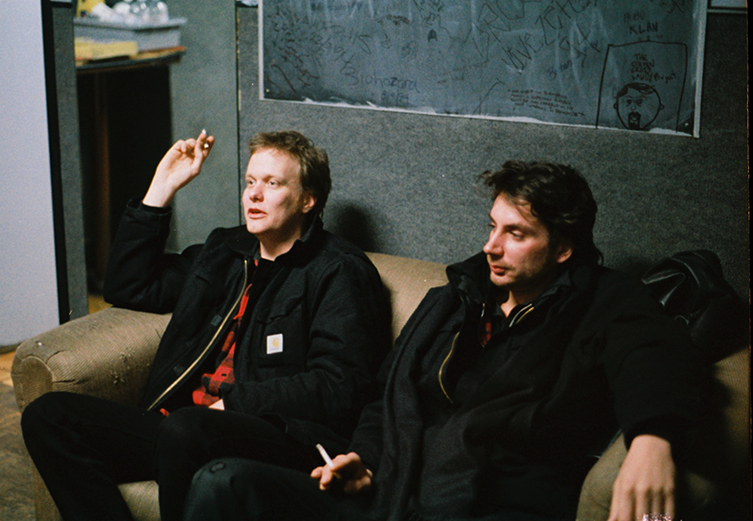
(Photo: Bruno Gebhard)
Caspar is currently working on new music. In the meantime, Home and other recordings by Caspar Brötzmann Massaker are available from Southern Lord Records. We hope to catch Caspar live in action as soon as the world begins to return to normal: it’s sure to be a phenomenal experience!
We’d like to thank Caspar for both his time and his interesting, thoughtful responses. We’d also like to thank Lauren Barley for her help in putting this together.
Have a good listen to Caspar’s incredible music: if you are anything like us, you’ll be running to your guitar straight after, fuzz pedal set to stun and whammy bar poised for chaos!
Thanks for reading.


